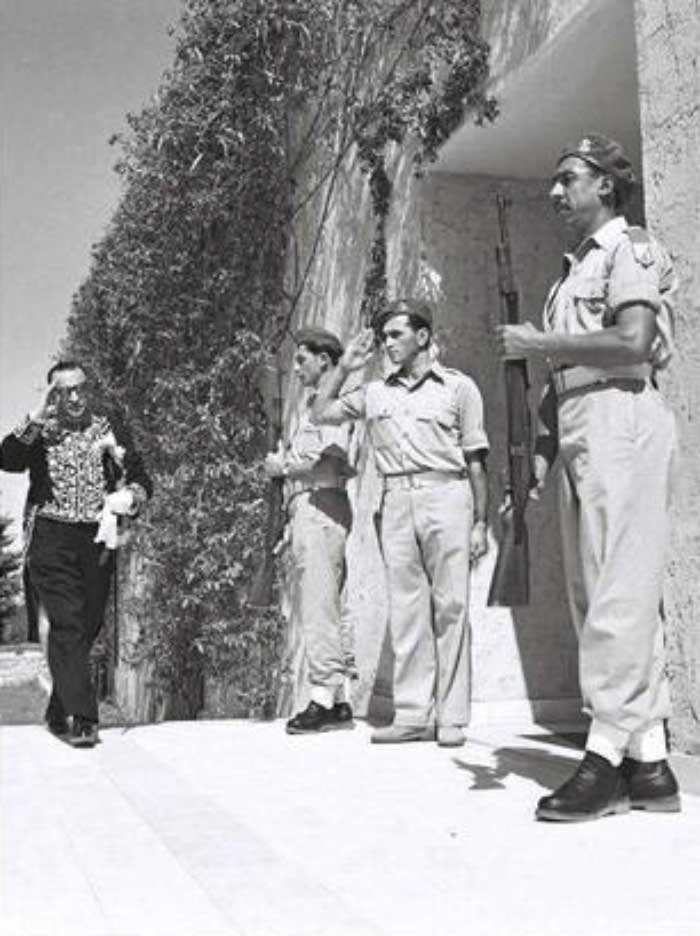By Reza Parchizadeh
Since its establishment nearly forty years ago, the Islamic Republic of Iran has maintained a hostile stance towards Israel. The phrase “wiping Israel off the face of the earth” has always been a critical component of the regime’s political ideology. Iran’s hatred of Israel has dominated its foreign policy and relations with the international community. However, from the creation of the state of Israel in 1948 until the 1979 Islamic Revolution, the two countries were on amicable terms.
In this article, I will review the economic and industrial relations between the two countries before the start of the hostilities nearly forty decades ago. Needless to say, the absence of economic ties, trade, and cultural exchanges for all these years have hurt both countries. We dream of a day when a secular and democratic Iran would restore its friendly relationship with Israel.
Towards the end of WWI (1914-1918), the British defeated the Turks and took control of parts of the Ottoman Empire including Palestine. Britain governed this area under a League of Nations Mandate from 1920 to 1948. The Mandate also gave Britain the responsibility to create a national Jewish homeland in the region. Iran was one of the first countries to recognize the state of Israel and open a consulate in Jerusalem.

Iran and Israel helped to develop each other’s industries. Oil formed the central part of the trade between the two countries all through the Cold War. Iran was the only country in the Middle East which continued to sell oil to Israel during the Six-Day War in 1967 and the Yom Kippur War in 1973. Iran even increased its oil output to meet international demand after many Arab countries refused to sell theirs to the West for its support of Israel.
In exchange, Israel supplied Iran with technological and management know-how. Israel helped to build many of the ports, air force basis and industrial sites in Iran. Israel was also instrumental in implementing the late Shah’s “White Revolution” (series of reforms launched in 1963.) Teams of Israeli experts provided training in land and water management to Iranian engineers, infrastructure technicians, and urban planners. The White Revolution ushered in a period of industrial, agricultural and social development in Iran in the 1960s and 70s. The state made significant progress in developing the country’s infrastructure during this period.
[aesop_image img=”https://kayhanlife.com/wp-content/uploads/2018/07/Israel_iran_1975.jpg” panorama=”off” align=”center” lightbox=”on” caption=”Top Iranian military officials Hasan Toofanian and Bahram Ariana (left), meet with Israeli officers in the headquarters of the Israel Defense Forces, 1975. (photo credit: public domain, Wikimedia Commons)” captionposition=”left” revealfx=”off” overlay_revealfx=”off”]
Israel possesses the technology to produce clean water for drinking and agricultural use which Iran so desperately needs right now. Israeli Prime Minister Benjamin Netanyahu released a video in June in which he offered Israeli water expertise to Iran. Vast regions of the country have been experiencing severe water shortage in recent years. The Israeli government has even created a Farsi-language website which provides information on how to prevent drought.
Israel is one of the driest lands on the planet. That’s why it has invested many resources into its water-management program. Much of the credit for the country’s advanced and effective water management goes to Simcha Blass (1897-1982), a Polish-Israeli engineer and inventor who developed the drip irrigation system, which releases water through large and extended passageways rather than tiny holes by using friction to slow the water flow inside a plastic emitter. The primary objective is to guide water directly into the root of plants and minimize evaporation. Water is distributed through a network of valves, pipes, and tubing. The system was used in agricultural regions in Iran before the revolution.
[aesop_image img=”https://kayhanlife.com/wp-content/uploads/2018/07/Israel_shah_ari-issar.jpg” panorama=”off” align=”center” lightbox=”on” caption=”Professor Arie Issar, right, headed the Israel water development team in Iran. The Shah of Iran, left, visited Issar and one of the water drilling projects in the late 1960s to express his gratitude for the work of the Israelis. (Photo courtesy of Arie Issar)Source: Tablet, Twitter and kayhan London” captionposition=”left” revealfx=”inplace” overlay_revealfx=”off”]
Iran and Israel developed strong economic ties in the 1960s and 70s. Many prominent Jewish-Iranian businessmen invested in industries and manufacturing in both countries, which created many jobs. Habib Elghanian, an Iranian businessman, industrialist and philanthropist, founded the PlascoKar plastic and melamine manufacturing company in Iran in 1958. Mr. Elghanian also built the 17-story iconic Plasco building in 1962 in Tehran. At the time, it was the only indoor shopping mall in the country and the tallest building in the capital. Elghanian, who was also the president of the Jewish Society of Tehran, was arrested and executed after the 1979 Islamic Revolution. A fire destroyed the Plasco building in January 2017.
While the leaders of the Islamic Republic have shown some flexibility towards Washington from time to time, if only to lessen international anger and perhaps attract investment, they have, however, never eased their antisemitic sentiments and hatred of Israel. The conservatives, the reformists, and the moderates are all unified in their disdain of Israel. The Islamic Republic might be under pressure to make peace with the U.S., but it will never abandon its hostile stance towards Israel.
The efforts by the international community to bring Iran back to the negotiating table have not persuaded Iran to forsake its hatred of Israel. Despite a great desire by the Israeli and Iranian people to revive their former friendly relationship, the two countries will not normalize ties as long as the Islamic Republic regime governs Iran.
[Translated from Persian by Fardine Hamidi]

